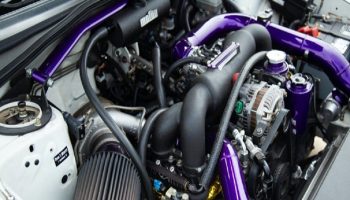When it comes to off-road adventures, having reliable brakes is essential for safety and control. The rugged terrain and demanding conditions encountered off-road can put extra stress on your truck’s braking system, making proper maintenance crucial for optimal performance. In this blog, we’ll explore some tips for maintaining your truck’s braking system for off-road use, ensuring that you can stop confidently when the going gets tough.
1. Regular Inspections:
Regular inspections are the first line of defense when it comes to brake maintenance. Periodically inspect your truck’s braking system for signs of wear, damage, or leaks. Check brake pads, rotors, calipers, brake lines, and fluid levels for any abnormalities. Catching issues early can prevent further damage and ensure that your brakes are in top condition when you need them most.
2. Upgrade to High-Performance Brake Components:
Consider upgrading to high-performance brake components designed specifically for off-road use. Heavy-duty brake pads, rotors, and calipers can provide increased stopping power and durability, especially when navigating steep descents or carrying heavy loads off-road. Additionally, stainless steel brake lines offer improved brake feel and resistance to corrosion, ensuring consistent performance in demanding conditions.
3. Opt for Proper Brake Fluid:
Choose the right brake fluid for off-road use to maintain optimal brake performance and reliability. High-performance brake fluids with a higher boiling point are better suited for off-road driving, as they provide increased resistance to brake fade under heavy loads or prolonged braking. Be sure to flush and replace brake fluid according to the manufacturer’s recommendations to prevent moisture buildup and maintain proper brake function.
4. Adjust Brake Bias for Off-Road Conditions:
Off-road driving often requires different braking characteristics compared to on-road driving. Adjusting brake bias to favor the rear brakes can provide better control and stability when descending steep hills or traversing uneven terrain. Consult with a professional or refer to your vehicle’s owner’s manual for guidance on adjusting brake bias for off-road use.
5. Keep Brake Components Clean and Lubricated:
Dirt, mud, and debris can accumulate on brake components during off-road driving, leading to premature wear and reduced braking performance. Regularly clean your truck’s brakes with a mild detergent and water to remove dirt and debris. Pay close attention to brake calipers, pads, and rotors, and use a brake parts cleaner to remove any stubborn buildup. Additionally, lubricate brake caliper pins and slides with a high-temperature silicone lubricant to ensure smooth operation and prevent binding.
6. Monitor Brake Pad Wear:
Keep an eye on brake pad wear and replace them as needed to maintain optimal braking performance. Off-road driving can accelerate brake pad wear due to increased heat and friction, so it’s essential to inspect them regularly. Replace brake pads if they are worn beyond the manufacturer’s recommended thickness or if you notice any signs of uneven wear or damage.
7. Practice Proper Braking Techniques:
Finally, practice proper braking techniques when driving off-road to minimize stress on your truck’s braking system. Avoid riding the brakes on steep descents, as this can cause brake fade and overheating. Instead, use engine braking and downshift to control speed when descending hills. Additionally, maintain a safe following distance and avoid sudden stops to reduce wear and tear on brake components.
Conclusion:
Maintaining your truck’s braking system for off-road use is essential for safety and control on the trail. By following these tips, you can ensure that your brakes are in top condition and ready to handle the challenges of off-road driving. Whether you’re navigating steep inclines, crawling over rocks, or traversing muddy trails, a well-maintained braking system will provide the stopping power and reliability you need for a successful off-road adventure.






